Croatian TikTok: A battleground between pro-EU and anti-EU narratives
Gong, a Croatian democracy watchdog organisation and EDRi member, published an analysis of the political narratives on TikTok during the national 2024 election campaign. The research explores the political narratives and environment on TikTok in the pre-campaign and campaign period for the Croatian parliamentary elections. It highlights a vibrant and intricate political landscape on TikTok in Croatia, marked by a division between democratic and anti-democratic narratives aimed at swaying the platform's younger audience.
Filter resources
-
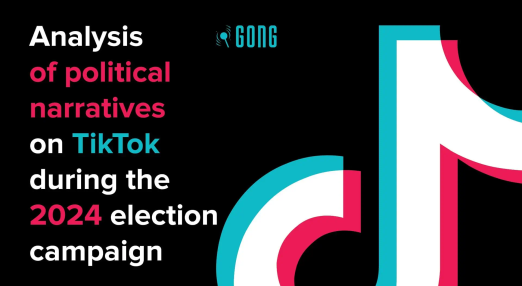
Croatian TikTok: A battleground between pro-EU and anti-EU narratives
Gong, a Croatian democracy watchdog organisation and EDRi member, published an analysis of the political narratives on TikTok during the national 2024 election campaign. The research explores the political narratives and environment on TikTok in the pre-campaign and campaign period for the Croatian parliamentary elections. It highlights a vibrant and intricate political landscape on TikTok in Croatia, marked by a division between democratic and anti-democratic narratives aimed at swaying the platform's younger audience.
Read more
-
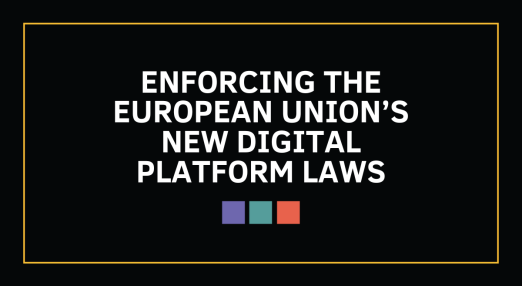
Enforcing the European Union’s new digital platform laws: How it is going so far
It’s already September and the European Parliament’s summer break is officially over. While the legislature was sleeping, the European Union’s (EU) tech enforcers and their counterparts—Big Tech lobbyists—have been busy plotting their next moves. If you have been away over the summer, here is what you might have missed and what that means for the state of digital rights in the EU
Read more
-
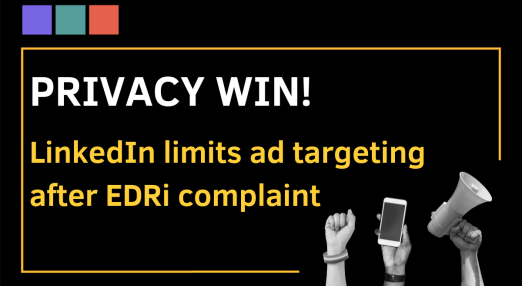
Privacy win: LinkedIn limits ad targeting after EDRi complaint
LinkedIn gave in to pressure from civil society and Digital Services Act (DSA) enforcers based on a complaint by EDRi and three partner organisations. The platform will no longer allow advertisers to target ads based on sensitive personal data from users. That’s a big win for privacy and the DSA, but it also exposes one of the DSA’s more hidden weaknesses.
Read more
-

Between policy and reality: EDRi’s assessment of the implementation challenges in the troubled Terrorist Content Online Regulation
Since its enactment nearly two years ago, the so-called ‘Terrorist Content Online Regulation’ has faced scrutiny over its implementation and effectiveness. The EDRI network has contributed insights to the European Commission's Call for Evidence for its evaluation. We expressed significant concerns regarding potential violations of fundamental rights and the efficacy of its enforcement measures, advocating for the withdrawal of the regulation in favour of one that genuinely guarantees respect for fundamental rights.
Read more
-

Privacy is not for sale: Meta must stop charging for people’s right to privacy
Ahead of a crucial opinion by the European Data Protection Board (EDPB) – a grouping of the EU’s chief privacy regulators - on Meta’s plan to charge for privacy, the European Commission has opened an investigation that we hope will cast light on the unlawfulness of Meta’s so-called ‘Pay or Okay’ model, which has become the ‘talk of the town’ in Brussels.
Read more
-
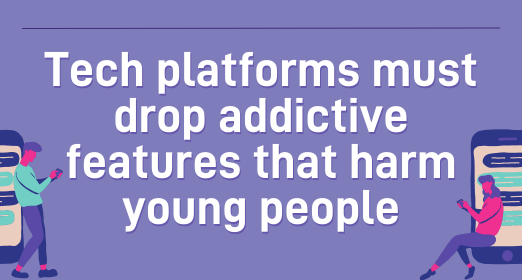
Tech platforms must drop addictive features that harm young people
Social media companies construct their platforms in ways that make them addictive. Algorithms show individuals things that they think will keep them hooked for longer.
Read more
-

Win against Facebook. Giant not allowed to censor content at will
By blocking the accounts and groups of Społeczna Inicjatywa Narkopolityki (SIN, the Civil Society Drug Policy Initiative), Meta has infringed on the organization’s personal rights. A Polish court issued a watershed decision in a case supported by the Panoptykon Foundation, thereby confirming that Internet platforms cannot block users at will.
Read more
-

Delay, depress, destroy: How tech corporations subvert the EU’s new digital laws
When the DSA and DMA were passed in 2022, major tech industry associations praised the new laws as significant achievements. It is time for Big Tech corporations to stop pouting and live up to their responsibility.
Read more
-
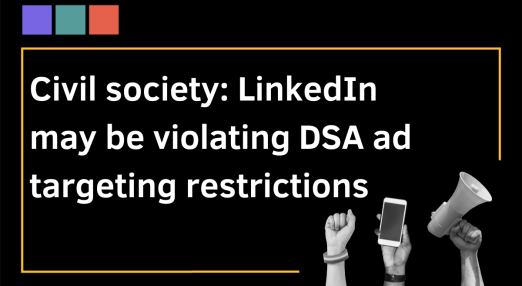
Civil society complaint raises concern that LinkedIn is violating DSA ad targeting restrictions
On 26 February, EDRi and its partners Global Witness, Gesellschaft für Freiheitsrechte and Bits of Freedom have submitted a complaint to the European Commission regarding a potential infringement of the Digital Services Act (DSA).
Read more
-

Temporary ePrivacy derogation: Companies like Facebook must never indiscriminately scan people’s private messages
In response to the European Commission’s public consultation on the extension of the interim ePrivacy derogation, EDRi warns that even when they are ‘voluntary’, any measures for digital platforms to indiscriminately scan people’s private messages are an unacceptable interference with our human rights.
Read more
-

Irish Media Regulator must address dangerous age verification in its new online safety code
On 30 January 2024, EDRi submitted its comments on the Irish Media Regulator’s (Coimisiún na Meán) new Online Safety Code in a public consultation, highlighting significant concerns about age verification.
Read more
-

Challenges ahead: European Media Freedom Act falls short in safeguarding journalists and EU fundamental values
The European Media Freedom Act (EMFA) culminated in a politically pressured final trilogue on 15 December 2023. Unfortunately, the agreed-upon text lacks crucial safeguards against surveillance of journalists, which dangerously promote the use of spyware in the EU. It alsoraises concerns about Article 17 and the “media exemption”, potentially undermining the Digital Services Act (DSA) provisions.
Read more
